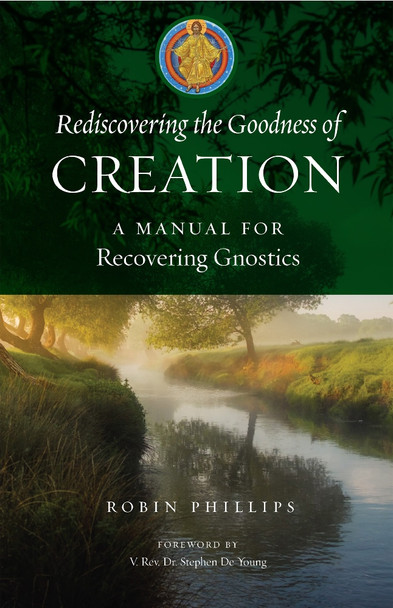How Christianity Provides Real Body Positivity
Social media is all ablaze about the Roman empire right now. Yet rather than actually learning from the ancient Romans, we seem to be obsessed with people who are obsessed with Rome. In all the questions people are now asking (i.e., how are thoughts about the Roman empire related to gender differences or tied to a willingness to engage in behaviors like “mansplaining”?) you will be hard-pressed to find conversation about what we might actually learn from our Latin progenitors. We might particularly benefit from exploring how our society is repeating many of the follies of the ancient Romans.
Consider the Romans’ disordered approach to the body, which found expression in both idealization and devaluation. Idealization of the body can be seen in sculptures of gods and goddesses, which presented stylizations inherited from Greek aesthetics in which nudity was used to emphasize idealized physique. Yet for all their body-worship, the Romans also devalued the body through, for example, making physical destruction a popular form of entertainment in the gladiatorial games.
Many upper class Romans engaged in violence against the regularities of the body by making vomiting a regular part of the mealtime experience. Contrary to a popular misconception, the Romans did not use a “vomitorium” to empty their stomachs. In order to make more room for food, Romans required only a room adjacent to the dining hall, with slaves ready to clean up the mess. (A “vomitorium,” by contrast, was simply a series of exit passages in an amphitheater so audiences could easily exit, or “vomit forth,” from a performance.) By tickling the back of their throat with a feather, they were able to simulate the choking reflex and induce vomiting, and thus prepare for piling in more food.
From violent entertainment to gorging-vomiting cycles perverted sexual practices, many Romans rebelled against the givenness of the body and its regularities, even while making an idol out of the body. These twin polarities of idealization and devaluation existed in a kind of symbiosis that shared in common resistance to the God-given meaning of the body, its purpose and processes.
We struggle with these same polarities today. Idealization of the body can be seen in the images that assault us in advertising and the media, with perfectionistic ideas for what can count as beauty, strength, and desirability. But when we romanticize the body to the point of idolatry, we end up devaluing it, turning the body into a site of violence. Nowhere is this more evident than on platforms like TikTok and Instagram, where the cult of body exhibition now finds its latest fetish in girls starving themselves online.
Last week Hadley Freeman reported a long stream of anorexic influencers who have died of malnutrition. As girls try to mimic and then outdo the “perfect body” of popular fashion models, they end up emaciating themselves and often succumbing to starvation.
There are, of course, economic reasons for the tragedy of anorexic exhibitionism. We have reported before that Instagram uses a business model that encourages sexualization, and an algorithm that incentivizes girls to take selfies in various forms of undress. When you combine these factors with the popularity of the thin aesthetic, you have a perfect storm of perverse incentives to facilitate voluntary starvation. As Freeman reported about the popular influencer, Eugenia Cooney, “the skinnier she becomes, the greater reaction she receives on social media.”
But behind the economic logic of social media, these troubling trends reflect a nascent rebellion against the body’s processes and norms. And that brings us back to the ancient Romans. On one level, forced vomiting to facilitate gluttony seems the opposite of forced starvation to facilitate vainglory, yet both are a rebellion against God’s design and the telos of the body.
Having inherited from modernity the terrible burden of needing to create ourselves from scratch, and having been told that anything short of self-creation represents a deficit in true authenticity, the regularities of the body come to be seen as obstacles to true freedom. Accordingly, the body becomes so much raw material on which we construct our own meaning. Moreover, any meaning that is normative to the world, and which we receive through the body, must become the object of deep hatred and finally violence. At the most benign level, this violence can be seen in the precipitous rise in the tattooing, which reduces the body to a tabula rasa on which each agent can construct his own meaning. But violence against the regularities of the body can also take a more maladaptive turn, as in the rise of elective amputees and a growing community of self-identified voluntary eunuchs.
What voluntary starvation and body modification share in common with Roman vomiting rituals is a revolt against the received telos of the body, and the normativity of its regularities and processes. But when a person revolts against the fixities of her body, is her identity in danger of collapsing into mere phantasm? That is a question Lilian Barger explored in her 2003 book, Eve’s Revenge: Women and a Spirituality of the Body.

Barger believes that feminism, and its offshoots like “body studies,” might be poised to offer a corrective to this objectification of the body, yet these disciplines often end up merely colluding with the problem.
In light of feminism’s aggressive critique of the radical separation of mind and matter, spirit and body, our wholehearted disregard for the self-knowledge the body provides is amazingly disturbing… Feminism is, in fact, a response to the devaluing that women have received due to their bodies, and “body studies” is the topic of the moment. However, in most formulations the body is either the site of oppression and protest or a historical and physiological object. What we hesitate to do is to talk about the body as an active agent informing and forming our lives.
Barger echoed observations from Wendell Berry, who warned of the growing tendency to objectify the body by denying it any rightful place in the economy of the soul. Here is what Berry observed in his 1977 book The Unsettling of America:
To think of the body as separate from the soul or as soulless, either to subvert its appetites or to “free” them, is to make an object of it. As a thing, the body is denied any dimension or rightful presence or claim in the mind. The concerns of the body—all that is comprehended in the term nurture—are thus degraded, denied any respected place among the “higher things” and even among the more exigent practicalities.

The theology of resurrection answered idealization because it proclaimed that the body reaches perfection only in Christ, and only as God’s Spirit comes to animate it. This means that in the eschatological future, when the body will be most perfected in all its beauty, strength, and glory, it will also most truly function as an image of God and point toward Him rather than simply itself. But the doctrine of resurrection also answers body devaluation, for it showed that even the weak and imperfect bodies we are tempted to despise are part of the creation God will glorify and transfigure. This gives us a mandate to care for our bodies, and to honor the God-given processes and purpose of our physiological design.
The Christian theology of the body may seem pretty straightforward, but it's crucial to remember how disruptive it was in first-century Roman culture, which took for granted practices like exposure of infants, sexual slavery, cremation, violent entertainment, and gluttony rituals. As Emory professor Thomas Long explains,
Early Christianity inherited the treasure of this Jewish understanding of the body and intensified it with strong convictions about the Incarnation and the bodily Resurrection of Jesus. Doing so stirred Christians not to idealize bodies (as the Greeks did in their perfect sculptures) or to romanticize them (as Sports Illustrated does in its swimsuit issue) but to care for bodies, real bodies, both living and dead, in ways that perplexed and confused their pagan neighbors.
As Christians continue proclaiming a biblical theology of the body, we should expect to find our pagan culture equally perplexed and confused. And that isn’t always a bad thing.
Next time someone asks if you ever think about the Roman empire, use that as an opportunity to share how the gospel disrupted the disordered approaches to the body prevalent throughout the Mediterranean world of the 1st century. Yes, the gospel shows how the soul can be saved, but the gospel also resituates how we think about our physical selves. The doctrines of creation, incarnation, and resurrection show us how to negotiate the body’s fallen condition without devaluing it, and how to receive the body as something good without idealizing or idolizing it.
Further Reading
- The Artistry of the Machine in the Empire of Desire
- Self-Esteem, Self-Compassion, Self-Love and Self-Care: Towards a Biblical Appraisal
- Arise, O God: The Gospel of Christ’s Defeat of Demons, Sin, and Death
has a Master’s in History from King’s College London and a Master’s in Library Science through the University of Oklahoma. He is the blog and media managing editor for the Fellowship of St. James and a regular contributor to Touchstone and Salvo. He has worked as a ghost-writer, in addition to writing for a variety of publications, including the Colson Center, World Magazine, and The Symbolic World. Phillips is the author of Gratitude in Life's Trenches (Ancient Faith, 2020) and Rediscovering the Goodness of Creation (Ancient Faith, 2023) and co-author with Joshua Pauling of Are We All Cyborgs Now? Reclaiming Our Humanity from the Machine (Basilian Media & Publishing, 2024). He operates the substack "The Epimethean" and blogs at www.robinmarkphillips.com.
• Get SALVO blog posts in your inbox! Copyright © 2025 Salvo | www.salvomag.com https://salvomag.com/post/idealization-and-devaluation-from-the-roman-empire-to-social-media



















